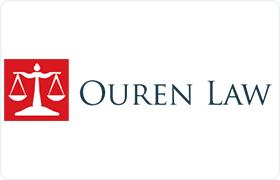Yakima Family Law Lawyer, Washington, page 5
Sponsored Law Firm
-
 x
x

Click For More Info:
-
Ouren Law
4101 South Union Street Kennewick, WA 99337» view mapDivorce & Family Law Dedicated. Straightforward. Tough.
With more than a decade of experience, Attorney Ouren has helped many clients achieve successful results in their family law and criminal law matters.
800-971-6601
Includes: Collaborative Law, Domestic Violence & Neglect, Paternity, Prenuptial Agreements
Richard Tyler Cole
Land Use & Zoning, Litigation, Family Law, Corporate
Status: In Good Standing Licensed: 51 Years
Michael Leon Everett
Family Law, Divorce & Family Law, Personal Injury
Status: In Good Standing Licensed: 50 Years
 Kimberly Ouren Kennewick, WA
Kimberly Ouren Kennewick, WA Practice AreasExpertise
Practice AreasExpertise
